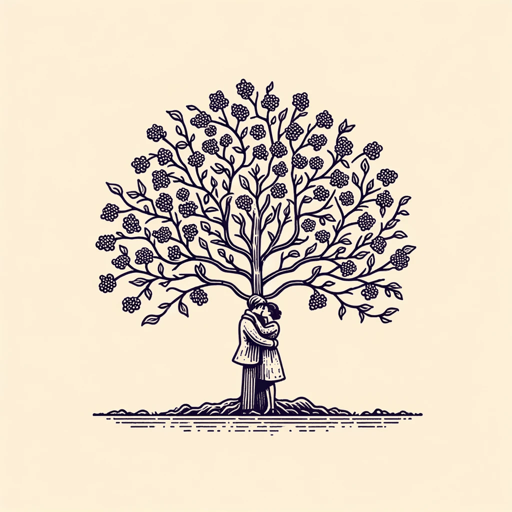29 pages • 58 minutes read
Willa CatherThe Sculptor's Funeral
Fiction | Short Story | Adult | Published in 1905A modern alternative to SparkNotes and CliffsNotes, SuperSummary offers high-quality Study Guides with detailed chapter summaries and analysis of major themes, characters, and more.
Summary and Study Guide
Summary: “The Sculptor’s Funeral”
“The Sculptor’s Funeral” is a work of short fiction by Willa Cather that was first published by McClure’s Magazine in 1905. It was reprinted as part of her first collection of short fiction, The Troll Garden. The story is set in the fictional frontier town of Sand City, Kansas. Cather’s story examines the corrupting influence of the Western frontier and illustrates the struggle between the artist and society.
This guide refers to the 1905 edition that appeared in McClure’s Magazine and is housed on the University of Nebraska-Lincoln website as part of the Cather Collection.
Content Warning: This short story uses an anachronistic term for people with diverse racial backgrounds. The term is considered offensive today, and the guide references it only in quoted material.
The story begins at an isolated, nearly empty train station depot surrounded by snow-capped bluffs that line a wide-open night sky on the prairie. A group of men huddle together alongside a broad-shouldered man who purposefully stands apart from them. They’re waiting for the body of Harvey Merrick, who was born and raised in Sand City but moved east to attend college and gained a reputation as a successful artist and sculptor.
When the train arrives, the men are met by a former student and friend of Merrick, a Bostonian named Henry Steavens. He is alarmed by the reception of the body since the men seem indifferent to the solemn occasion. Protective of his mentor even in death, Steavens rides with the body in the hearse to the Merrick family home.
At the house, Steavens and the party of men are met by the towering form of Merrick’s mother, who shrieks and wails in a dramatic show of grief that horrifies the Bostonian. Increasingly concerned, Steavens enters the cold, uninviting home; the casket is placed in the parlor. Looking around a home filled with mass-produced décor typical of middle-class American homes, Steavens sees almost nothing that might indicate his friend ever lived there.
He watches the various reactions to Merrick’s return and is surprised when he finds true grief in only Martin Merrick—the man’s ailing father—and Jim Laird, a local lawyer. Laird is the broad-shouldered man with a red beard who kept his distance from the others at the depot, where Steavens first met him. He alternates between lamenting the tragedy of Merrick’s death and demonstrating an angry disgust at the town. From Laird, Steavens learns that Merrick’s mother was a cruel woman who criticized and shamed him throughout his childhood. Looking around, Steavens is both saddened and amazed that Merrick maintained the purity of soul and eye for beauty that were pivotal to his success as an artist. After these revelations, Laird encourages the Bostonian to go on ahead and sit with the townspeople, suggesting he will learn more of the truth of Merrick’s life.
The townspeople return to the parlor to sit with the body as Merrick’s family retires for the evening. They begin to mock and insult the dead man, whose success ensured his legacy but earned him no monetary status. First, they insult his incompetence as a farmer and a businessman. Next, they deride his choice to become an artist and discuss his father’s continual financial sacrifices, such as mortgaging his farms, to finance his education. Finally, they condescendingly describe his gentle manner and sensitivity.
Steavens listens on, horrified by the display, until Laird angrily enters the room and intimidates the townspeople into a cowering silence. He accuses the men of being narrow-minded and toxic before he reprimands them for the abuse they heaped upon Merrick for his righteousness and purity of spirit. He also reveals the sordid financial dealings and petty crime that rest just beneath the surface of the seemingly respectable frontier town and the impact of this legacy upon the young men from Sand City.
Laird reveals that he and Merrick went east together to attend college, hoping to become great men and make the townspeople proud. Though he eventually returned and relented to the social pressure to help the locals sustain their shady dealings, Merrick was incorruptible and made a name in the East as an artist. He finishes his tirade by claiming the townspeople hated Merrick for his success. Scorning true greatness, the men value only money. He claims that their greed and negative influence condemn the young men of the town to lives of immorality and vice that lead to ruin. Through his ideals, only Merrick was able to escape and become truly great. However, the price of his success was an overwhelming bitterness and disillusionment that gradually contributed to his premature death. Having revealed the truth to Steavens, Laird leaves in disgust.
After these revelations and learning of Laird’s heartful admiration of Merrick, Steavens remains with the body for the rest of the night. He reaches out to Laird, expecting to see him again. However, Laird doesn’t respond; he is drunk on the day of the funeral and doesn’t attend. He dies shortly after Merrick from a cold he contracts while traveling to defend another of the young townsmen in court for cutting down trees on government land.
Related Titles
By Willa Cather

A Lost Lady
Willa Cather

A Wagner Matinee
Willa Cather

Coming, Aphrodite!
Willa Cather

Death Comes for the Archbishop
Willa Cather

Lucy Gayheart
Willa Cather

My Antonia
Willa Cather

Neighbour Rosicky
Willa Cather

One Of Ours
Willa Cather

O Pioneers!
Willa Cather

Paul's Case
Willa Cather

Shadows on the Rock
Willa Cather

The Professor's House
Willa Cather

The Song of the Lark
Willa Cather

